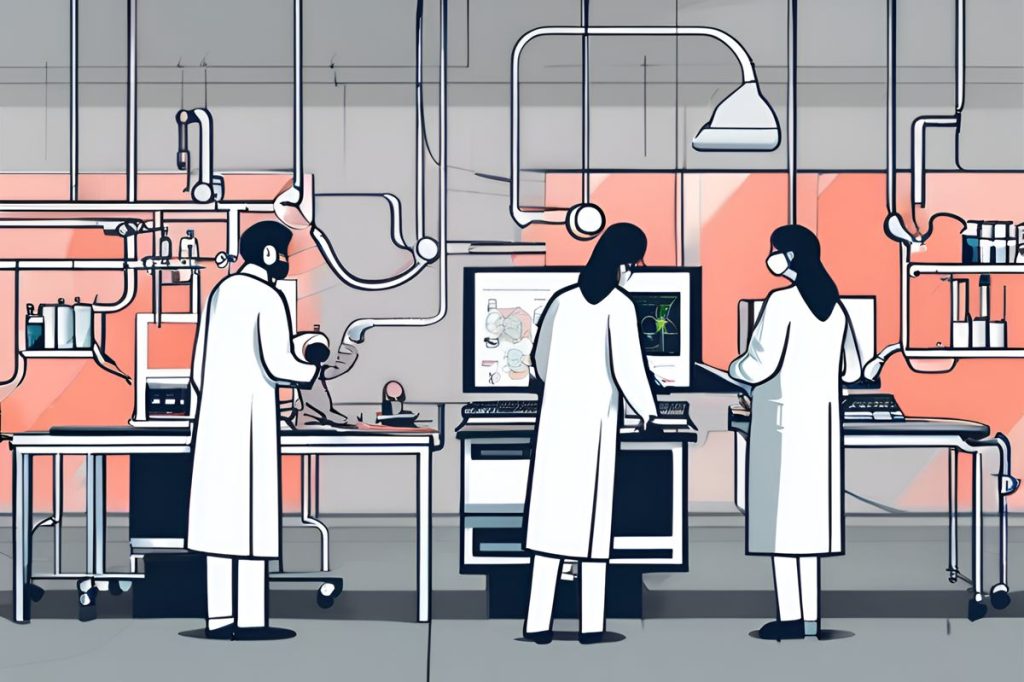Artificial Intelligence (AI) is revolutionizing healthcare at the Cyprus Institute of Neurology and Genetics (CING), enhancing precision medicine through data-driven strategies. Through the Department of Bioinformatics (C-BIG), AI is advancing early diagnosis, effective prognoses, and drug discovery, transforming patient care and reshaping the understanding and treatment of diseases through bioinformatics.
What role is AI playing in enhancing healthcare at the Cyprus Institute of Neurology and Genetics?
Artificial Intelligence (AI) at the Cyprus Institute of Neurology and Genetics (CING) is pivotal in advancing precision medicine. AI aids C-BIG in data monetisation, early diagnosis, effective prognoses, and drug discovery. It enhances multi-disciplinary collaboration, enabling comprehensive patient care from diagnosis to post-treatment, and revolutionizes the understanding and treatment of diseases through bioinformatics.
The Advent of Precision Medicine at CING
The Cyprus Institute of Neurology and Genetics (CING) stands at the forefront of medical innovation, and the recent visit by Chief Scientist Demetris Skourides has shed light on the monumental impact artificial intelligence (AI) is having within its corridors. At the heart of the institute’s pioneering efforts is the Department of Bioinformatics (C-BIG), a hub characterized by its exceptional expertise and a multitude of specializations. The Department, which came into existence with the EU’s backing through the BIORISE project, is a testament to the remarkable strides made in the field of bioinformatics since its inception in 2016.
Skourides underscored the importance of multi-disciplinary teams in the context of healthcare. By leveraging AI, C-BIG is enhancing its data monetisation strategies, which are crucial for the progression of patient care and research. Multi-disciplinary collaboration, as emphasized by Skourides, facilitates a comprehensive approach to patient care, encompassing a patient’s journey from diagnosis to post-treatment.
Pioneering Research and the AI Revolution
Advancements in computing power and the burgeoning capabilities of AI and machine learning, especially those facilitated by cloud technologies, are propelling research at an unprecedented pace. Professor George Spyrou, who leads the Department of Bioinformatics, has championed the use of advanced computational methods. These methods range from network analysis and AI-ready data transformations to multi-source data integration and modelling, all aimed at unraveling the complex web of biomedical data.
C-BIG’s mission revolves around utilizing applied bioinformatics to spearhead early diagnosis, effective prognosis, and the discovery of new drugs. Their focus aligns with the vision of precision and personalized medicine, an area that stands to benefit immensely from AI. By harnessing the power of AI, C-BIG is not only contributing to the identification of potential biomarkers and exploring new avenues for drug repurposing but also addressing some of the most pressing questions in human health.
Computational Methods Meeting Biomedical Challenges
The department’s commitment to tackling the complexities of human health is unwavering. Through computational methods, the team at C-BIG aims to unearth critical hidden factors in disease progression, monitor systemic changes, and approach the challenging questions of human health with a computational perspective. Their work has the potential to revolutionize our understanding of the molecular mechanisms behind diseases, thus paving the way for breakthroughs in how we identify, treat, and prevent illness.
The benefits of such an integrated, AI-driven approach are manifold. In utilizing these advanced computational techniques, C-BING can extract meaningful insights from vast datasets, translating them into actionable knowledge. This holistic perspective is not only transformative for patient care but also a significant step towards the realization of a future where healthcare is more precise, personalized, and predictive.
The Era Chair Grant and Its Implications
The establishment of the Department of Bioinformatics was significantly bolstered by the EU H2020 ERA Chair Grant, BIORISE, which contributed over €2 million for a five-year period. This investment has been instrumental in ensuring that the department could secure a permanent position within CING. The support has allowed C-BING to attract top talent, acquire state-of-the-art technology, and advance its research capabilities.
As we look to the future, the contributions of C-BIG to the field of precision medicine are expected to grow exponentially. With the continued integration of AI into their research and data monetisation strategies, the possibilities for enhancing patient care and accelerating medical discoveries are boundless. The forward-thinking approach adopted by the Cyprus Institute of Neurology and Genetics is setting a standard for others to follow in the exciting intersection of bioinformatics and artificial intelligence.
How is AI enhancing healthcare at the Cyprus Institute of Neurology and Genetics?
Artificial Intelligence (AI) at the Cyprus Institute of Neurology and Genetics (CING) is pivotal in advancing precision medicine. AI aids C-BIG in data monetisation, early diagnosis, effective prognoses, and drug discovery. It enhances multi-disciplinary collaboration, enabling comprehensive patient care from diagnosis to post-treatment, and revolutionizes the understanding and treatment of diseases through bioinformatics.
What is the Department of Bioinformatics (C-BIG) doing at CING?
The Department of Bioinformatics (C-BIG) at the Cyprus Institute of Neurology and Genetics focuses on utilizing advanced computational methods, AI, and machine learning to advance early diagnosis, effective prognoses, and drug discovery. C-BIG aims to revolutionize patient care and reshape the understanding and treatment of diseases through bioinformatics.
How has the EU H2020 ERA Chair Grant contributed to the work at C-BIG?
The EU H2020 ERA Chair Grant, BIORISE, provided over €2 million for a five-year period to the Department of Bioinformatics (C-BIG) at CING. This funding has been instrumental in securing a permanent position for C-BIG within CING, attracting top talent, acquiring state-of-the-art technology, and advancing research capabilities. It has significantly contributed to the growth and success of C-BIG in the field of precision medicine.
What are the implications of the AI revolution in healthcare at CING?
The AI revolution in healthcare at CING, spearheaded by the Department of Bioinformatics (C-BIG), is leading to advancements in early diagnosis, effective prognoses, and drug discovery. By leveraging AI and advanced computational methods, C-BIG is transforming patient care, uncovering critical factors in disease progression, and paving the way for precision, personalized, and predictive medicine. The integration of AI is expected to continue enhancing patient care and accelerating medical discoveries at CING.

